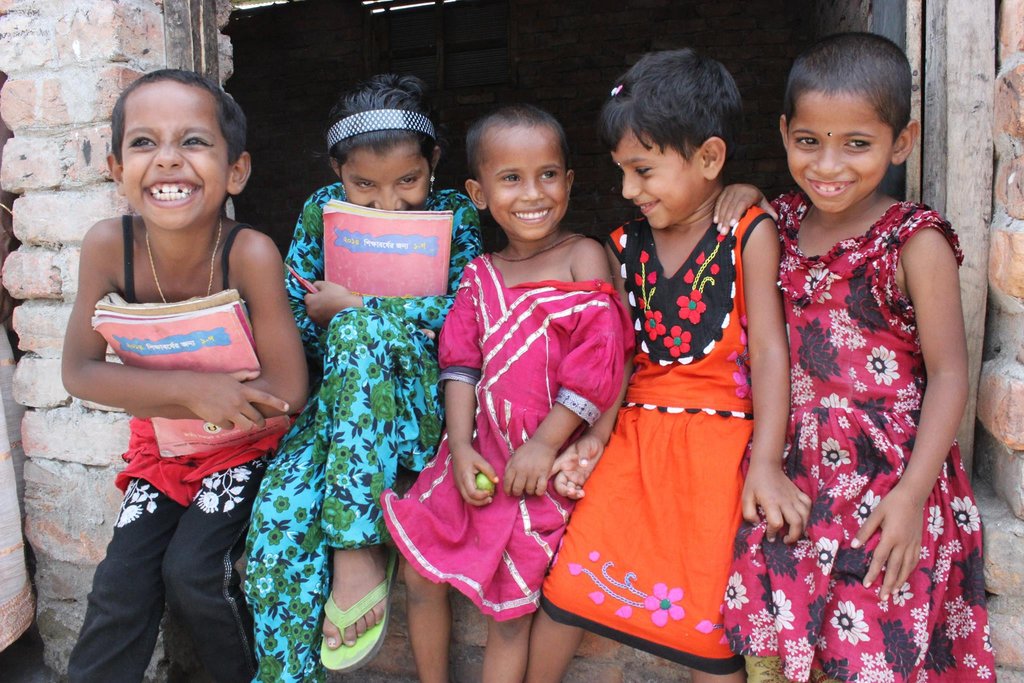World Bank Sign $300M in Financing to Empower 900,000 Rural Youth in Bangladesh

|
Listen to this story:
|
The government of Bangladesh and the World Bank signed a $300 million financing agreement to equip about 900,000 economically disengaged rural youth with skills and alternative education needed for employment and entrepreneurship. About 60 percent of them will be female.
The Economic Acceleration and Resilience for NEET (EARN) Project will help overcome barriers that prevent disadvantaged and vulnerable youth from gaining education and employment. It will provide skills training, alternative education, employment, and entrepreneurial support to rural youth who are not in education, employment, or training (NEET). The project will establish vocational training centers to offer a range of skills development opportunities and provide online and offline training courses in market-driven and futuristic trades. They will be in locations convenient to rural youth, especially female. It will also and offer competitive financing and mentorship support for entrepreneurial activities. It will help secondary school dropouts, particularly female students to complete vocational secondary education.
“The youth are the future of any country. Creating a well-equipped competitive workforce, where no young person is excluded, is a critical development priority for Bangladesh,”
said Abdoulaye Seck, World Bank Country Director for Bangladesh and Bhutan.
“The project will help develop a competitive workforce through skill development, continuity of education, and employment opportunities while addressing underlying cultural and social norms that drive exclusion, particularly for women, people with disabilities, and ethnic minorities.”
In Bangladesh, about 27 percent of youth that is about 12.6 million people are classified as NEET. About 90 percent of them are female, mostly living in rural areas. To enhance their employability, the project will offer skills development training for a wide range of market-relevant trades with an emphasize on modern and non-traditional trades, especially for women.
For secondary school dropped-out youth and adolescents, the project will provide access to Bangladesh Open University education programs through an accelerated curriculum. They will be able to access diploma-level technical education in fields such as nursing, medical technology, agricultural food processing and other courses. To support entrepreneurship, the project will provide seed financing, mentorship, and other relevant supports to the new entrepreneurs.
Related Article: World Bank Approves $650 Million in Financing to Strengthen Argentina’s MSMEs and Food Programs
“The government placed high priority on economically engaging the youth, particularly female and disadvantaged ones, who are not in education or employment through skill development,”
said Sharifa Khan, Secretary, Economic Relations Division, Government of Bangladesh.
“This project is aligned with the Eighth Five-Year Plan 2021-2025 and support the country’s graduation from LDC status in 2026 and the vision 2041. It will support the government plans and policies by establishing a comprehensive support mechanism for economic engagement of the rural NEET youth, including the persons with disabilities, and segment of the population with special needs, which is essential.”
To create a supportive environment for youth to participate in skill development activities, the project will launch communications and awareness-raising campaigns and involve the communities in planning and monitoring the project activities. It will also provide incentives in terms of stipend, examination fees, and textbooks to motivate the youth, especially women. It will also promote sports and cultural activities and provide psychosocial support to youth.
The agreement was signed by Sharifa Khan and Abdoulaye Seck on behalf of the Government and the World Bank, respectively.
The credit is from the World Bank’s International Development Association (IDA) and has a 30-year term, including a five-year grace period.
Bangladesh currently has the largest ongoing IDA program totaling $15.86 billion. The World Bank was among the first development partners to support Bangladesh and has committed about $40 billion in grants, interest-free and concessional credits to the country since its independence.









